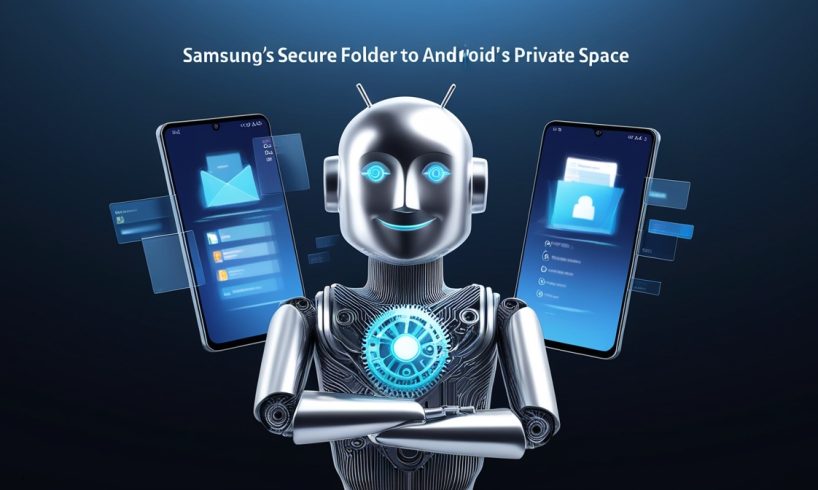
In an era where digital privacy and device security are more important than ever, Samsung users have long relied on the Secure Folder—a built-in feature that allows for the isolation of sensitive apps and data from the rest of the device. However, in a significant shift, Samsung is now transitioning from its proprietary Secure Folder to Android’s new Private Space feature, a move that aligns with Google’s broader Android privacy strategy.
Why the Change?
With Android 15 on the horizon, Google has introduced Private Space, a system-level feature that enables users to create a completely separate environment for apps and data—essentially a hidden, secure zone within the Android OS. Unlike Samsung’s Secure Folder, which was vendor-specific and required Samsung’s Knox security framework, Private Space is part of the Android Open Source Project (AOSP). This means it’s available to all Android OEMs, providing a consistent and standardized privacy experience across devices.
Samsung appears to be embracing this change, choosing to phase out Secure Folder in favor of the native Android solution. This shift is expected to improve compatibility and reduce redundancy, while still maintaining a high level of data security.
What Is Private Space?
Private Space is a feature designed for both personal privacy and professional use. It allows users to:
- Install and run apps independently from the main user profile
- Hide sensitive apps or data from the general view
- Require separate authentication (PIN, fingerprint, etc.) to access
- Automatically lock or hide based on inactivity or screen state
In practical terms, Private Space is ideal for users who want to keep work-related apps, confidential documents, or even personal photos completely separate from their everyday phone experience.
What This Means for Samsung Users
Samsung’s Secure Folder has been popular with professionals and privacy-conscious users alike. It enabled a sandboxed environment for apps, protected by an additional layer of authentication. However, since it was deeply integrated into Samsung’s ecosystem, it lacked interoperability with other Android devices.
With the switch to Private Space:
- Users can expect better app compatibility, especially for third-party apps that now don’t need to integrate separately with Samsung’s API.
- Migration may be seamless, depending on how Samsung implements the transition. Samsung could provide tools to migrate existing Secure Folder data into Private Space.
- Knox security will still be present, especially in enterprise-focused Galaxy devices, likely reinforcing Private Space with hardware-level protections.
Should You Be Concerned?
For users worried about the disappearance of Secure Folder, there’s no need for panic. Private Space is designed with similar—if not stronger—security principles. And since it’s backed by Google, updates, support, and compatibility are expected to improve over time.
That said, those who rely heavily on Samsung-specific features may notice some differences in interface or functionality. It’s wise to back up your data and review how the new Private Space functions once the update becomes available on your device.
Samsung’s decision to embrace Android’s Private Space marks a step toward greater cohesion in the Android ecosystem. It promises more robust, standardized security for all users—without compromising on privacy or performance. For those concerned about managing work profiles, personal data, or sensitive apps, Private Space could very well be the future of digital compartmentalization on Android.

I am a person who is positive about every aspect of life.I have always been an achiever be it academics or professional life. I believe in success through hard work & dedication.
Technology Blogger at TechnoSecrets.com






